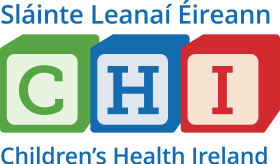Children’s nasal spray flu vaccination programme starts today
HSE encourages parents to protect children from flu this winter with the free nasal spray flu vaccine
Oct. 17, 2022
News, Service updates

Dr Steeven’s Hospital at the launch of the HSE’s free nasal flu vaccine for children aged between 2 -17 is Sadie Ellis, aged 5, Glasnevin, Dublin.
HSE encourages parents to protect children from flu this winter with the free nasal spray flu vaccine
Today (Monday, 17th of October 2022), the HSE is asking parents of all children aged 2 to 17 years to get the free nasal spray flu vaccine. The nasal spray flu vaccine gives children the best protection from flu. The flu vaccine will also help protect others, like siblings, parents, grandparents and those who are vulnerable.
All children aged 2 to 17 years can get the free nasal spray flu vaccine from participating GPs and pharmacies. The GP or pharmacist will give the nasal vaccine by spraying it once into each of the child’s nostrils. Getting the nasal spray flu vaccine is a safe, effective and a pain free way to protect your child from flu this winter.
Dr Aparna Keegan, Specialist in Public Health Medicine and Flu Lead, HSE National Immunisation Office said: “Flu is a serious illness that can be dangerous in children too. The nasal spray flu vaccine is a very safe and effective vaccine and helps your child’s immune system produce antibodies that fight infection. It cannot give your child the flu. If your child has had the flu vaccine and they come into contact with flu virus, these antibodies will help them fight the flu and reduce the risk of getting sick or needing to go to hospital.
“We know that children are twice as likely as adults to catch flu. Getting your child vaccinated is the best way to protect them against flu this winter, and help reduce the spread of flu to others too. Other countries, including the UK, have been offering flu vaccine to children for many years.
“The nasal flu vaccine is also the recommended vaccine for children who may have chronic health conditions. We recommend speaking to a trusted health professional about the flu vaccine recommended for your child. If it’s not possible for them to get the nasal flu vaccine, they can get the flu injection instead.”
Minister for Health, Stephen Donnelly TD said: “I am delighted to see the flu vaccine has been made available free of charge to all children aged 2 to 17. The flu vaccine is a key measure in protecting the community and our health services over the winter months. I would like to encourage all those who are eligible to get the flu vaccine to do so as soon as possible; and I would like to take this opportunity to encourage parents with children within this age range to get their children vaccinated against the flu this year.
“Not only will the flu vaccine help protect your child against flu, it will also help protect more vulnerable family members. It is important that we all do what we can to avoid serious illness and hospitalisation this winter.”
Children can be very sick with flu
While most children who catch flu have mild symptoms, flu can sometimes lead to serious complications such as pneumonia or bronchitis in some children. Children, especially young children, are also more likely than adults to get severe complications of flu.
In Ireland, between 2009 and 2019, the HSE Health Protection Surveillance Centre (HPSC) reported:
- 4,750 children needed hospital treatment because of complications of flu
- 183 of these were admitted to intensive care
- 41 children died.
Flu can cause serious illness in children, and children and young people with long term health conditions are most at risk of the severe complications from flu and needing hospital treatment.
Children who are sick with flu, even with mild symptoms, can miss days in crèche, childcare and school. They can also miss out on their usual activities such as hobbies and sports.
Symptoms of flu in children include:
- High temperature
- Muscle pains
- Headache
- Extreme tiredness (fatigue).
Children also carry the flu virus in their system longer than adults do. It can spread easily to other children, like those in day-care centres and schools, and to older and vulnerable people around them.
The flu vaccine gives children the best protection against flu.
Getting the nasal spray flu vaccine and other vaccines
The HSE is also reminding parents of children and young people that the flu vaccine does not protect against COVID-19. It is safe for children to get the COVID-19 vaccine at the same time as the flu vaccine.
For children aged 5 to 11 who have not had their primary COVID-19 vaccination, and for those with a weak immune system and due a booster dose, appointments are available at HSE vaccination centres by making an appointment on www.hse.ie
It is also safe for children to get the nasal flu vaccine at the same time as any of the vaccines that may be offered to them through the HSE’s schools immunisation programme. The 4 in 1 and MMR vaccine are offered in junior infants and the HPV, Tdap and MenACWY vaccine are offered to first years.
To see what vaccines are recommended for your child, visit www.hse.ie, call HSELive on 1800 700 700 or talk to a participating GP or Pharmacy.
